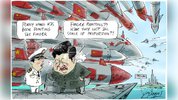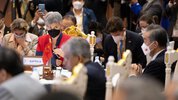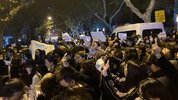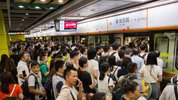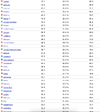Australia given our rich natural resources/mineral's can/should thank China for keeping our economy above water so to speak as our largest trading partner over these past several decades.
Wish this rhetoric around China being our perceived enemy/theat in the Asia Pacific region would stop - what makes it worse is our further strengthening of our alliance with Britain & the US as of course China sees this as a security threat within the Asia Pacific region. No wonder our recent relationship with China has derailed as a result.
If Australia was neutral in such matters we would be able to trade with everyone & not be impacted by silly sanctions (as imposed by China in recent times).
We don't need to be spending billions of $$ on national security as it ain't going to achieve anything/no benefit whatsoever as in fact makes us more of an imminent target imo
A neutral world would be nice like something you would hear about at the Nimbin Mardi Grass days in the 90's.


